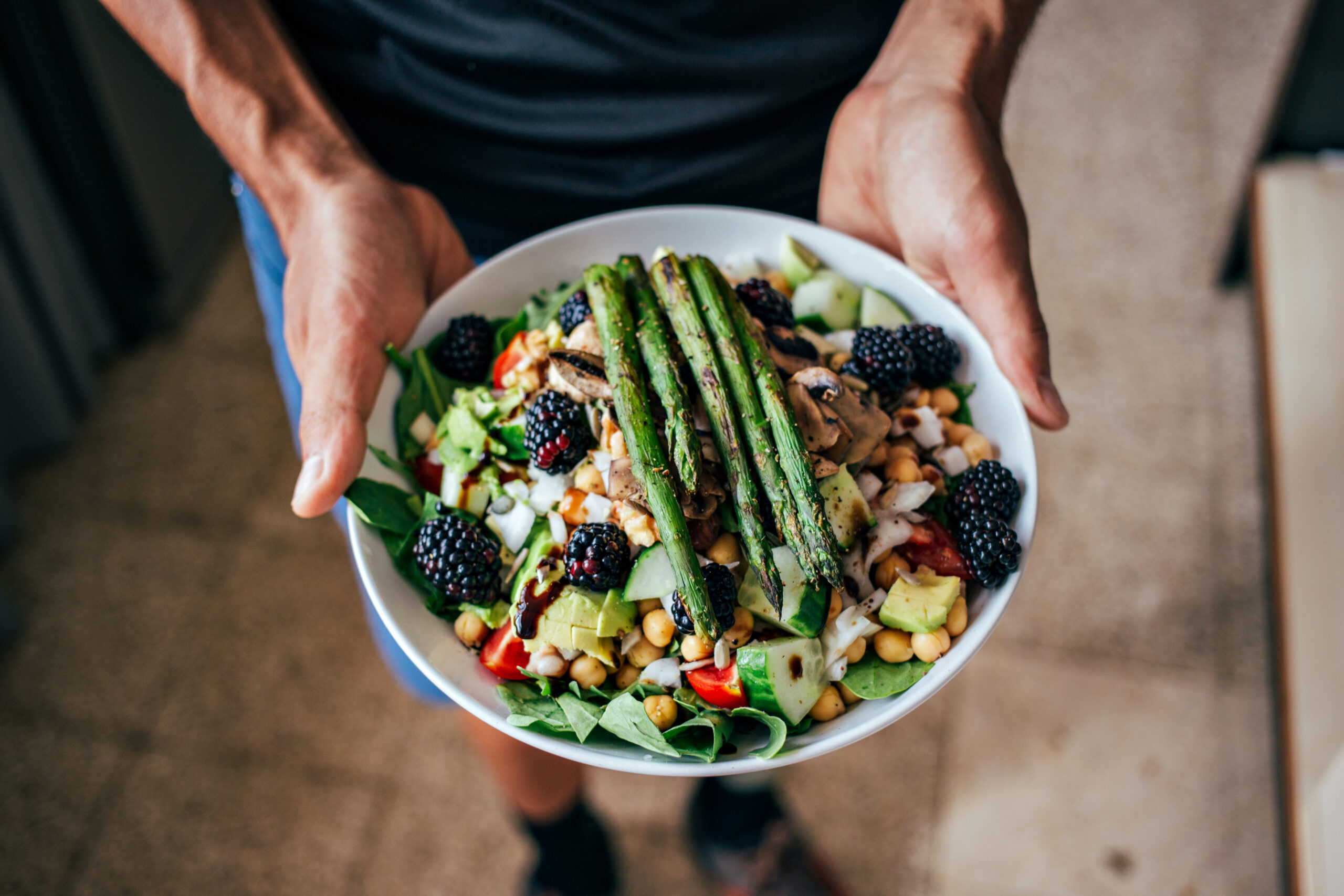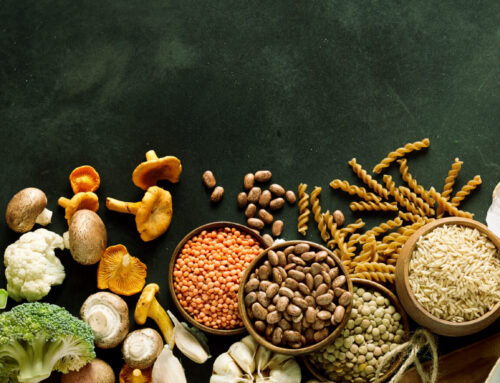You are what you eat. We know it’s cliché, but it’s overused for a reason: because it’s true!
If you’ve ever looked up ways to eat better, you’ve probably heard the terms “insulin sensitivity” and “insulin resistance.” You might even have come across an insulin resistance diet.
But what exactly do these terms mean, and why is it important to maintain a healthy insulin response?
Let’s explore the science of insulin sensitivity and resistance, discuss the key role that diet plays in managing these conditions, and provide you with seven foods for insulin resistance.
Insulin Sensitivity vs. Insulin Resistance
First, let’s start with the basics. Insulin is a hormone produced by the body that helps regulate blood sugar levels.
If blood sugar levels are not properly regulated, you may experience health issues such as fatigue, dizziness, or more serious complications like diabetes or cardiovascular diseases.
Insulin Sensitivity
Insulin sensitivity refers to how effectively the body’s cells respond to insulin. When you have high insulin sensitivity, your body needs less insulin to lower blood sugar levels.
This is an ideal situation, as it means your body can efficiently process the glucose in your blood and use it for energy or store it for later use.
High insulin sensitivity is generally associated with better health outcomes, including a lower risk of developing type 2 diabetes, heart disease, and obesity.
Factors that can improve insulin sensitivity include the following:
- Regular exercise
- Maintaining a healthy weight
- Consuming a well-balanced
- Getting enough sleep
Insulin Resistance
Insulin resistance, on the other hand, is a condition where the body’s cells become less responsive to insulin. This means that more insulin is required to maintain normal blood sugar levels.
When insulin resistance develops, the pancreas produces more insulin to compensate, but over time, it may not be able to keep up with the increased demand. This can lead to elevated blood sugar levels and eventually type 2 diabetes, if not addressed.
Factors that contribute to insulin resistance include the following:
- Sedentary lifestyle
- Excess body weight (particularly around the abdomen)
- Poor diet
- Chronic stress
- Insufficient sleep
Foods That Improve Insulin Sensitivity
The food you eat has a significant impact on your body’s ability to regulate insulin. Eating a diet high in processed foods, refined carbohydrates, and sugars can contribute to insulin resistance.
On the other hand, a diet rich in whole foods, healthy fats, and high-quality proteins can help improve insulin sensitivity.
Here are our top seven foods that improve insulin sensitivity and fight insulin resistance.
1. Whole Grains
Whole grains are beneficial for insulin sensitivity and combating insulin resistance due to their high fiber content, low glycemic index, nutrient composition, and contribution to weight management.
Incorporating whole grains into your diet can help promote better blood sugar control, support healthy insulin function, and reduce the risk of developing type 2 diabetes. [1]
Examples of whole grains include quinoa, brown rice, whole wheat, barley, and oats.
2. Leafy Greens
Leafy greens, such as spinach, kale, and collard greens, are low in calories but they are also packed with fiber, micronutrients, antioxidants, and phytochemicals.
Including them in your diet can help with weight management, which is essential for maintaining insulin sensitivity and reducing the risk of insulin resistance.[2]
3. Fatty Fish
Fatty fish, such as salmon, mackerel, sardines, and herring, can help improve insulin sensitivity due to their high content of omega-3 fatty acids and other essential nutrients.
Fatty fish are rich in omega-3 fatty acids, particularly EPA (eicosapentaenoic acid) and DHA (docosahexaenoic acid).
These essential fatty acids have been shown to have anti-inflammatory properties, which can help counteract chronic inflammation that impairs insulin function and contributes to insulin resistance. [3]
4. Legumes
Lentils, chickpeas, black beans, kidney beans, and other legumes can help improve insulin sensitivity with their unique nutritional composition and health benefits.
Legumes are high in fiber and low on the glycemic index, which means they cause a slower and more stable rise in blood sugar levels compared to high-GI foods.
Consuming low-GI foods helps reduce the demand for insulin and makes it easier for the body to maintain balanced glucose levels, which in turn supports insulin sensitivity.[4]
5. Nuts and Seeds
Similar to legumes, nuts and seeds are low on the glycemic index. One thing that sets them apart is their healthy fats.
Nuts and seeds like almonds, walnuts, chia seeds, are rich in healthy fats, particularly monounsaturated and polyunsaturated fats, which have been shown to improve insulin sensitivity.
These fats can help regulate blood sugar levels, reduce inflammation, and lower the risk of developing type 2 diabetes. [5]
6. Berries
Thought you wouldn’t see a sweet treat on this list? Think again!
Blueberries, raspberries, and blackberries are packed with powerful polyphenols and antioxidants, such as anthocyanins, flavonoids, and vitamin C, which help neutralize free radicals and reduce inflammation.
Chronic inflammation can impair insulin function and contribute to insulin resistance, so consuming antioxidant-rich foods like berries can support healthy insulin function. [6]
7. Greek Yogurt
Consider adding some berries into your Greek yogurt!
Packed with protein and probiotics, Greek yogurt can help you feel fuller longer while promoting a healthy gut microbiome.
Beneficial probiotics are live bacteria that can promote gut health. A healthy gut microbiome has been linked to improved insulin sensitivity, as it can help reduce inflammation, regulate glucose metabolism, and improve the function of insulin. [7]
Fight Back Against Insulin Resistance
Understanding the importance of insulin sensitivity and resistance and making informed dietary choices can have a significant impact on your overall health.
By incorporating foods that promote insulin sensitivity into your daily meals, you can effectively manage your blood sugar levels and reduce the risk of insulin resistance-related complications.
If you’d like to learn more about optimizing your diet and overall health, Total Health and Fitness is here to help.
Take advantage of our free consultation, where our team of experts will assess your individual needs and provide personalized recommendations for a healthier lifestyle.
Don’t hesitate to make a positive change in your life—book your free consultation today and start your journey toward improved insulin sensitivity and a healthier, happier you!
References
- McKeown, Nicola M. PhD; Crowninshield, Cindy A. RD, LDN, HHC; Jacques, Paul F. ScD. Is Insulin Sensitivity Improved by Diets Rich in Whole Grains?. Nutrition Today 46(2):p 54-65, March 2011. | DOI: 10.1097/NT.0b013e31821189cf.
- Wang PY, Fang JC, Gao ZH, Zhang C, Xie SY. Higher intake of fruits, vegetables or their fiber reduces the risk of type 2 diabetes: A meta-analysis. J Diabetes Investig. 2016 Jan;7(1):56-69. doi: 10.1111/jdi.12376. Epub 2015 Jun 22. PMID: 26816602; PMCID: PMC4718092.
- Navas-Carretero S, Pérez-Granados AM, Schoppen S, Vaquero MP. An oily fish diet increases insulin sensitivity compared to a red meat diet in young iron-deficient women. Br J Nutr. 2009 Aug;102(4):546-53. doi: 10.1017/S0007114509220794. Epub 2009 Feb 12. PMID: 19210857.
- Clark JL, Taylor CG, Zahradka P. Rebelling against the (Insulin) Resistance: A Review of the Proposed Insulin-Sensitizing Actions of Soybeans, Chickpeas, and Their Bioactive Compounds. Nutrients. 2018 Mar 30;10(4):434. doi: 10.3390/nu10040434. PMID: 29601521; PMCID: PMC5946219.
- Kim Y, Keogh JB, Clifton PM. Benefits of Nut Consumption on Insulin Resistance and Cardiovascular Risk Factors: Multiple Potential Mechanisms of Actions. Nutrients. 2017 Nov 22;9(11):1271. doi: 10.3390/nu9111271. PMID: 29165404; PMCID: PMC5707743.
- April J. Stull, Katherine C. Cash, William D. Johnson, Catherine M. Champagne, William T. Cefalu, Bioactives in Blueberries Improve Insulin Sensitivity in Obese, Insulin-Resistant Men and Women, The Journal of Nutrition, Volume 140, Issue 10, October 2010, Pages 1764–1768, https://doi.org/10.3945/jn.110.125336
- Watanabe D, Kuranuki S, Sunto A, Matsumoto N, Nakamura T. Daily Yogurt Consumption Improves Glucose Metabolism and Insulin Sensitivity in Young Nondiabetic Japanese Subjects with Type-2 Diabetes Risk Alleles. Nutrients. 2018 Nov 29;10(12):1834. doi: 10.3390/nu10121834. PMID: 30501031; PMCID: PMC6316314.








